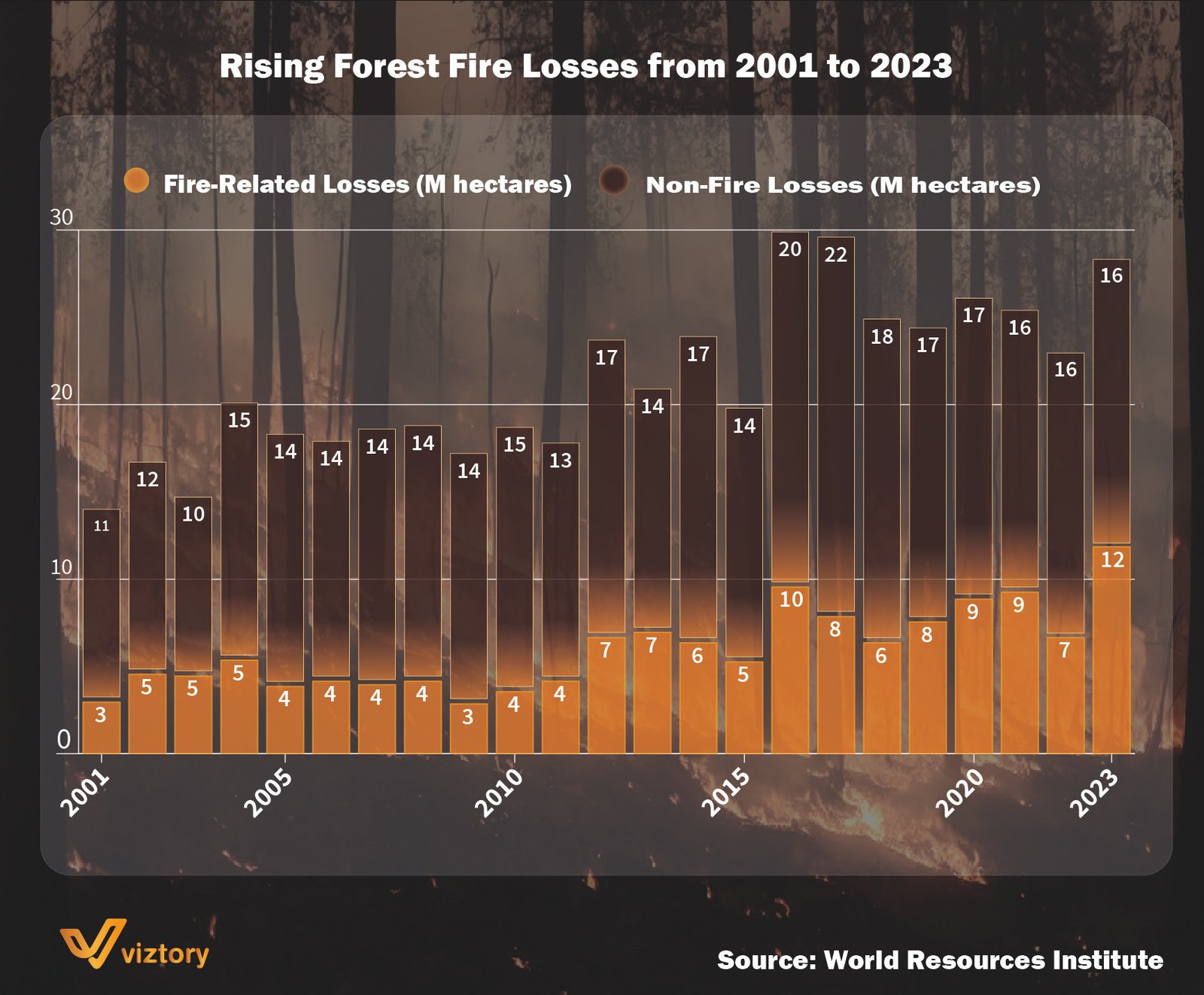Forest Fire Losses: Their Impact on Healthcare
-
Sep, Sat, 2024
Forest Fire Losses: Their Impact on Healthcare
In recent years, climate change has become one of the biggest challenges facing the world, and forest fires are among the most prominent phenomena that negatively impact the environment. The visualizations show the rising losses due to forest fires from 2001 to 2023, highlighting a major environmental issue that is directly linked to the degradation of forest health and environmental sustainability. However, alongside the environmental impact, forest fires have a significant effect on public health.
Forest fires release massive amounts of smoke and pollutants, such as fine particulate matter (PM2.5), which directly affect air quality and pose serious health risks. Inhaling these pollutants increases the risk of respiratory diseases like asthma and bronchitis, and can place additional strain on healthcare systems in affected areas. Vulnerable groups, such as children, the elderly, and individuals with pre-existing health conditions, are especially at risk from the health effects of air pollution.
The visualizations illustrate a notable increase in fire-related losses over the last decade. As climate-related natural disasters become more frequent, the pressure on healthcare institutions grows, necessitating enhanced efforts to strengthen healthcare systems and equip them to handle the impacts of environmental disasters. This includes the need for healthcare workers to be trained in managing the respiratory and other health issues resulting from exposure to smoke and poor air quality, as well as the provision of mobile medical units and emergency healthcare services in affected areas.
Moreover, investing in public health programs focused on reducing the risks associated with forest fires is crucial. These programs should emphasize protecting individuals, especially vulnerable groups, by promoting the use of protective equipment like masks and ensuring access to clean air shelters during fire events.
In conclusion, forest fires not only have significant environmental consequences but also pose serious health risks. It is essential to strengthen healthcare systems and promote public health initiatives to mitigate the short- and long-term health impacts of these devastating fires, ensuring the safety and well-being of affected populations.

